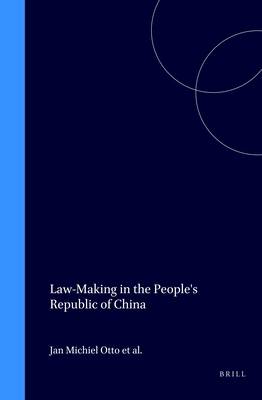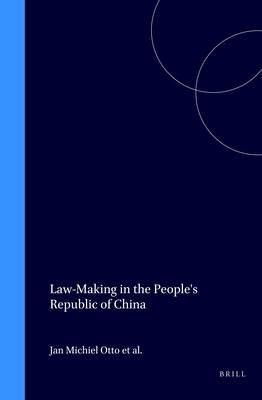
- Afhalen na 1 uur in een winkel met voorraad
- Gratis thuislevering in België vanaf € 30
- Ruim aanbod met 7 miljoen producten
- Afhalen na 1 uur in een winkel met voorraad
- Gratis thuislevering in België vanaf € 30
- Ruim aanbod met 7 miljoen producten
Zoeken
Law-Making in the People's Republic of China
€ 427,45
+ 854 punten
Omschrijving
Who are the legislators and what are the products of the legislative process in China? How does a law come into being? What meaning should we ascribe to these legislative products from the perspective of legal certainty? Can we recognise a Chinese approach to or style of law-making? What technical legislative problems have Chinese jurists identified and what sorts of solutions to them are being considered? These are the questions which Law-making in the PRC attempts to solve.
The volume opens with papers on the historical perspective of law-making, on ideology and law-making, and on a comparison between the PRC's legal framework and the frameworks of other legal systems. Part II deals with various `Institutions and Actors' involved, and offers analyses of the National People's Congress, the State Council, departmental rule-making, local law-making, law-making in autonomous regions, public participation, and the proposed law on law-making by academics. Part III offers three `case studies' in which important areas of legal development are analysed from a law-making point of view. The selected areas are administrative law, contract law, and criminal law.
The volume opens with papers on the historical perspective of law-making, on ideology and law-making, and on a comparison between the PRC's legal framework and the frameworks of other legal systems. Part II deals with various `Institutions and Actors' involved, and offers analyses of the National People's Congress, the State Council, departmental rule-making, local law-making, law-making in autonomous regions, public participation, and the proposed law on law-making by academics. Part III offers three `case studies' in which important areas of legal development are analysed from a law-making point of view. The selected areas are administrative law, contract law, and criminal law.
Specificaties
Betrokkenen
- Uitgeverij:
Inhoud
- Aantal bladzijden:
- 320
- Taal:
- Engels
- Reeks:
- Reeksnummer:
- nr. 5
Eigenschappen
- Productcode (EAN):
- 9789041114334
- Verschijningsdatum:
- 1/09/2000
- Uitvoering:
- Hardcover
- Formaat:
- Genaaid
- Afmetingen:
- 166 mm x 243 mm
- Gewicht:
- 644 g

Alleen bij Standaard Boekhandel
+ 854 punten op je klantenkaart van Standaard Boekhandel
Beoordelingen
We publiceren alleen reviews die voldoen aan de voorwaarden voor reviews. Bekijk onze voorwaarden voor reviews.







